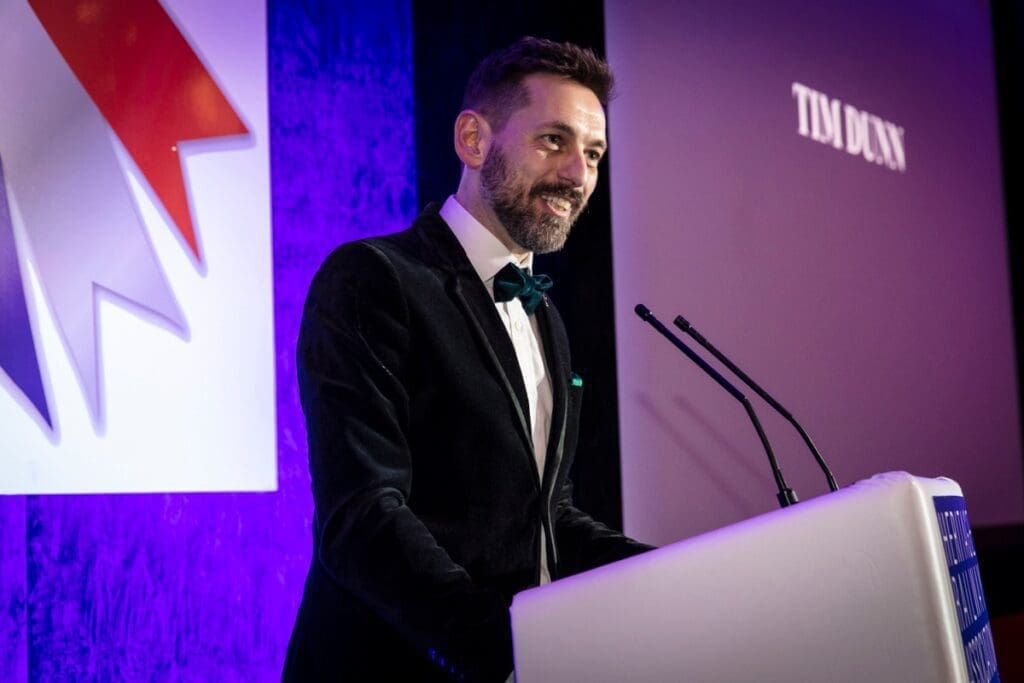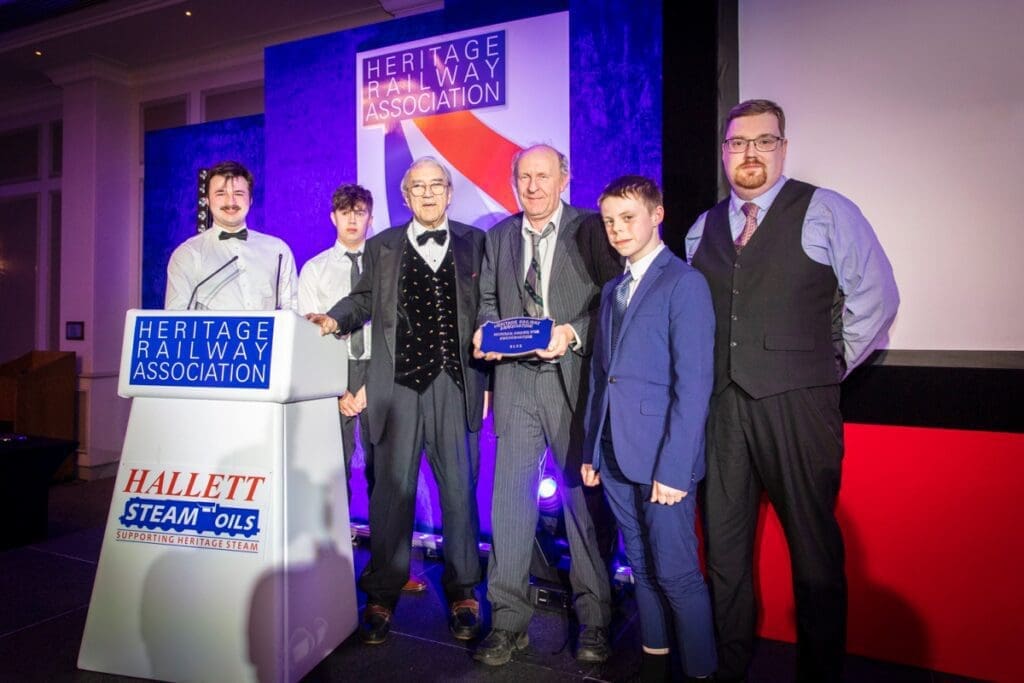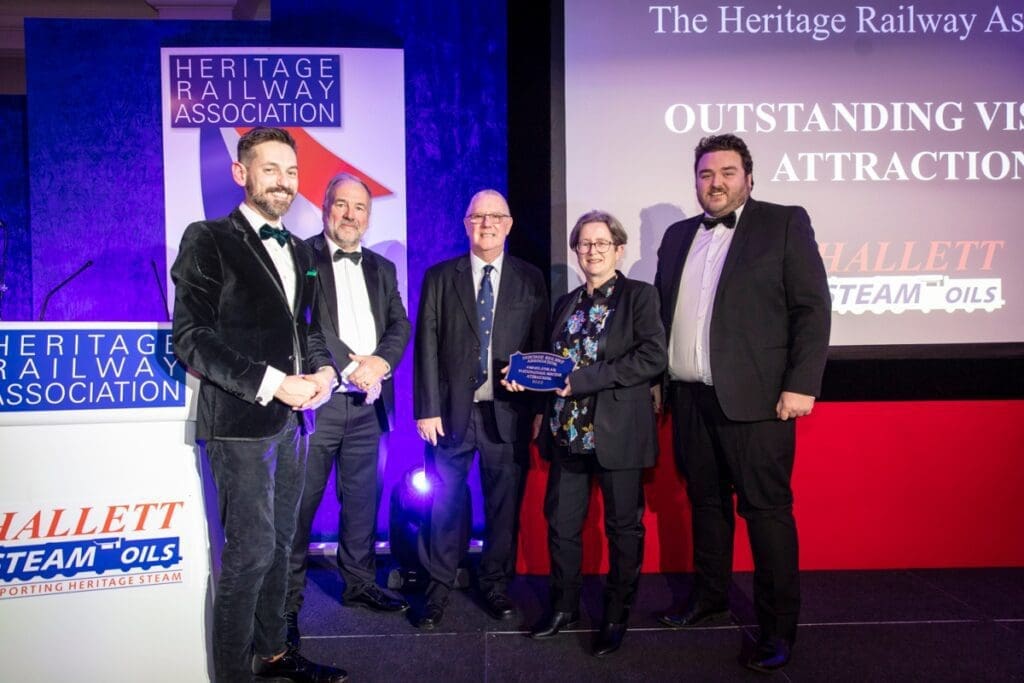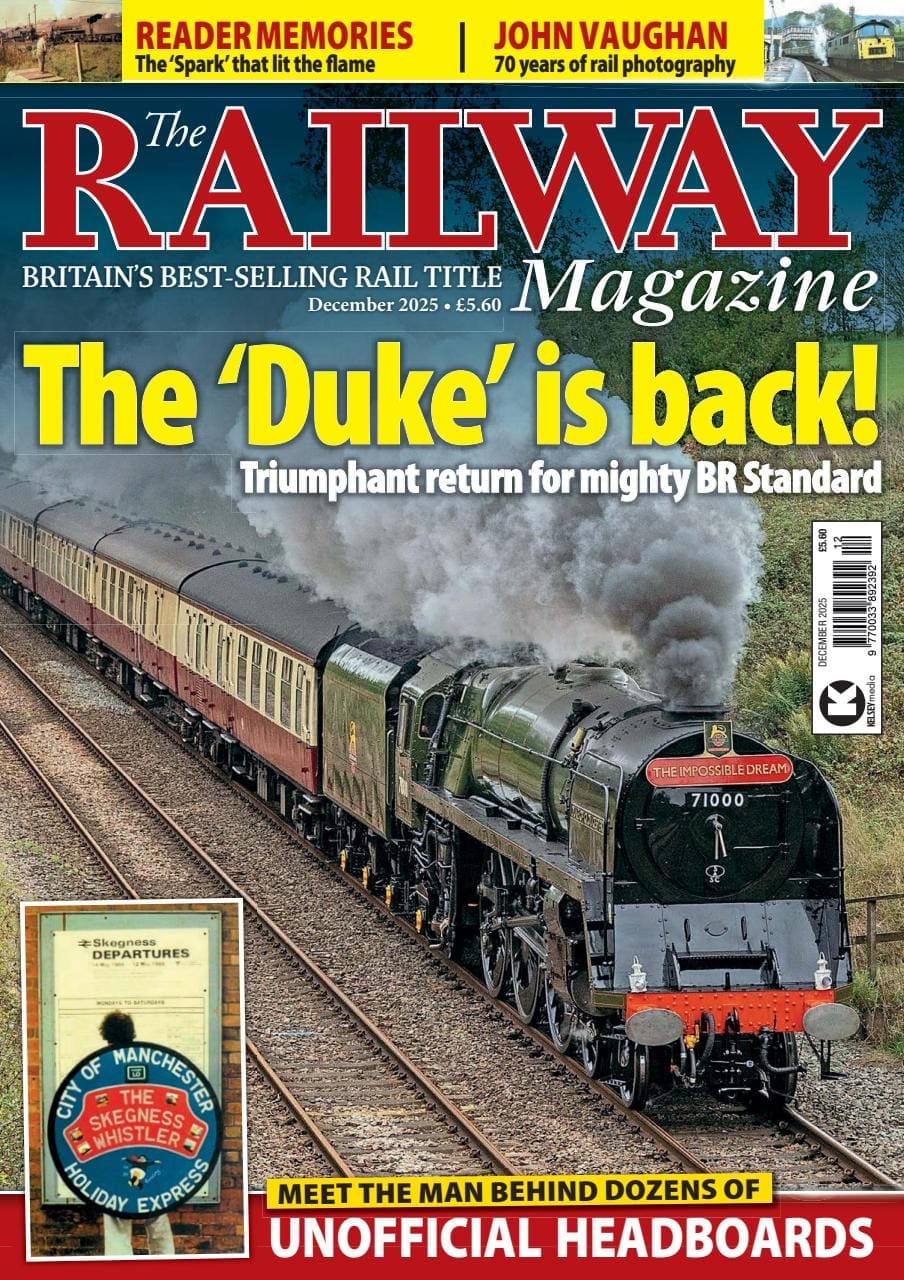
The restoration of the oldest surviving ‘Black Five’, Seaton Tramway, and a young Kent and East Sussex Railway volunteer took the top honours at the Heritage Railway Association annual awards.
Almost 250 heritage railway volunteers and staff from throughout the UK came together in Birmingham earlier this month for the return of the HRA Annual Awards evening. The event was being held for the first time since the coronavirus pandemic forced the awards to go online. The evening was hosted by Ffestiniog and Welsh Highland Railways general manager Paul Lewin with guest speaker Tim Dunn, of railway documentary fame. The awards saw a record-breaking number of entries, with more than 75 submissions covering almost every element of railway preservation in the UK.
The Morgan Award for Preservation, which recognises rolling stock restoration, was handed to the Great Central Railway-based Quorn Wagon and Wagon Group. The 17-wagon box van train was completed by the team, which is dedicated to non-passenger rolling stock. The group had finished as runners-up in the same category during 2021, but accomplishing the restoration of a full train impressed the judges this year.
From the history of steam through to 21st century rail transport news, we have titles that cater for all rail enthusiasts. Covering diesels, modelling, steam and modern railways, check out our range of magazines and fantastic subscription offers.

The Coiley Locomotive Engineering Award, sponsored by Morris Lubricants, was presented to the Strathspey Railway for its restoration of London Midland and Scottish Railway ‘Black Five’ No. 5025. The sheer scale of the work involved to return the 1934-built locomotive to original condition impressed judges and saw the 5MT take the title.
The hotly-contested title of Outstanding Visitor Attraction, sponsored by Hallett Oils – the event’s overall sponsor, was this year taken by Seaton Tramway. The 2ft 9in gauge tramway’s entry demonstrated the huge amount of digital work that has been carried out, as well as a real attention to detail in customer satisfaction.

In the HRA Award for Diesel Locomotion, the Isle of Wight Steam Railway’s transformation of pioneering 1920s Drewry railcar No. 2 claimed the trophy. The judges were impressed by the return of a vehicle – that many had forgotten even existed – to first-class condition by the line. The level of research carried out to ensure passengers gain an accurate idea of what traveling in this pioneering diesel vehicle during its heyday was like attracted praise.
The shortlist for the Lord Faulkner Young Volunteer Award had no fewer than 11 names on it. Twenty-five-year-old Kent and East Sussex Railway volunteer fireman and guard Sarah Tagart won the prize. As well as her operational duties, Sarah was responsible for the recruitment of a record-breaking number of new volunteers at the Tenterden-based line.
Heritage Railway Association chief executive Steve Oates said: “We had a record-breaking number of entries this year, and the Young Volunteer Award was one of the most hotly contested of all. I’m sure the judges would have given all 11 an award if they could, but Sarah’s work really shone.”

Young people also triumphed in the Most Innovative Fundraising Idea category, also sponsored by Hallett Oils. Teenage Downs Light Railway volunteers Thomas and Lucy Isherwood set about raising funds for the miniature railway during the coronavirus pandemic and managed to turn their target of £2000 into £50,000.
The HRA Award for Environmental Innovation, sponsored by Direct Track Solutions, was won by the Bure Valley Railway. The 15in gauge railway has been taking a pioneering role in trials of biomass blended fuel to replace traditional coal and has also adopted a raft of other initiatives in an effort to prove that steam railways can respond to ever increasing concerns about the environment.
There were so many entries for the HRA Award for Communications, sponsored by Wrigleys Solicitors, that it was split into internal and external categories. In the internal competition, the West Somerset Railway Association were triumphant for its publication, the West Somerset Railway Journal.
The East Lancashire Railway took the award for external communications back to Bury after judges recognised the railway’s efforts in transforming its digital presence to better capture the heritage nature of the line. Their success in measuring the impact that the changes made to the whole business were particularly highlighted.
The Cholsey and Wallingford Railway were the stand-out winners in the HRA Award for Small Groups, sponsored by Allelys Heavy Haulage. The railway attracted record numbers of visitors even in the face of a curtailed operating season due to the pandemic. It also completed the award-winning reconstruction of the Maidenhead canopy.
In the HRA Award for Large Groups, also sponsored by Allelys Heavy Haulage, the Bodmin and Wenford Railway won for its work to transform its business operations. The line totally revised its marketing operations to reduce costs, changed its catering operations, and moved to pre-booked ticket sales. The changes brought a bumper 55,000 visitors to the railway.
The HRA Chairman’s Special Award was awarded to Railway Vehicle Preservations Ltd for the rebuild of London and North Eastern Railway ‘beavertail’ observation saloon back to its 1937 condition. The judging panel felt that the restoration of such a historically important carriage deserved special credit and that the Chairman’s Special Award was the best way to show that.
To mark 70 years of preservation, the Talyllyn Railway was given the Manisty Award for Excellence. The most prestigious award given by the HRA, the accolade was presented to honour the enormous contribution that the Welsh narrow gauge line has made to the whole heritage railway sector and the inspiration it has provided to others for seven decades.
Mr Oates concluded: “This awards event means a huge amount to the heritage rail sector. It’s our chance to celebrate the railways and individuals who have gone above and beyond to deliver the quality, experience, ingenuity and passion that heritage railways depend upon. It’s also been a great opportunity to look back to the birth of heritage rail and take new inspiration from the massive success that the Talyllyn spearheaded all those years ago.
“After another really tough 12 months, not just for heritage railways but for the whole country, it’s been immensely satisfying to see and hear what a fantastic job volunteers and staff across the industry have been doing. It fills me with pride and with optimism that we will overcome whatever challenges face us next.”

